Welcome to one of the most active flamenco sites on the Internet. Guests can read most posts but if you want to participate click here to register.
This site is dedicated to the memory of Paco de Lucía, Ron Mitchell, Guy Williams, Linda Elvira, Philip John Lee, Craig Eros, Ben Woods, David Serva and Tom Blackshear who went ahead of us.
We receive 12,200 visitors a month from 200 countries and 1.7 million page impressions a year. To advertise on this site please contact us.
|

|
|
My version of picado...wrong?
|
You are logged in as Guest
|
|
Users viewing this topic: none
|
|
Login  | |
|

   
a_arnold
Posts: 558
Joined: Jul. 30 2006

|
 RE: My version of picado...wrong? (in reply to Estevan) RE: My version of picado...wrong? (in reply to Estevan)
|
|
|
quote:
Sliding the same finger to the next string on the way down is/was not uncommon amongst earlier generations of players. Strict alternation seems to be a more recent notion, and either one is a personal preference.
Sabicas definitely played his descending scales the economical way.
quote:
I don't know if Tony Arnold is around here these days, but his teacher studied with Ramon Montoya and passed on the repeated finger method. Do what works for you.
I'm around.
My teacher (Carlos Ramos) did study with Ramon Montoya -- so did Sabicas. Ramos and Sabicas were contemporaries. Ramos was as fast and as clear and as strong sounding as Sabicas. But my teacher didn't offer advice on whether it was "better" to go with strict alternation. He offered valuable advice on how to make your picado fast (there is a useful trick) but he didn't care about alternation. His trick worked regardless of "preference" for picado method. If asked, he probably would have agreed with Estevan's "do what works" philosophy.
Certainly the classical teachers I know would correct you if you played economical rather than strict alternating picado.
But I play the "economical" method (I like that -- economical -- it sounds better than lazy) and I am satisfied with a top speed of about 12 notes per second -- which sounds fast but, believe me, it's not -- but it's fast enough for my needs. I have heard PDL may get up to 16/sec or so. Never measured him myself, but he is definitely fast.
I agree that there is probably an evenness advantage to strict alternation. Strong, even "economical" playing -- like Sabicas achieved, may require more concentration than strict alternation. I don't know. I do feel like Sabicas sounds stronger and cleaner than most of the very fast players today (like PDL).
The Carity/Speed Tradeoff:
I'm not so sure there is a speed advantage to alternation. It may just be that some faster players are willing to sacrifice clarity for speed. I know that my teacher -- and Sabicas too, for that matter, played a guitar with incredibly high action by modern Conde standards. Carlos was playing a Santos Hernandez with high action when I knew him. Sabicas was playing a Ramirez with quite high action -- probably 5mm at the 12th fret. At that time, that was the way to achieve the clean sound that they valued so much. It required strong hands, of course, and I suspect that playing with action that high would slow anyone down somewhat. But they needed the high action to get big projection without buzzing. Amplification systems were, frankly, not so great then, and they tried to play without it whenever possible. Segovia did the same. Those guys sneered at amplification, and regarded it as a crutch. And they despised Carlos Montoya for playing low-action tuned-down buzzy guitars in front of a microphone, even if he did fill the Houston Astrodome. (Carlos Montoya was regarded as a hack by his uncle Ramon; Carlos M. tuned his guitar a half-step low and then used a capo to bring it back up to pitch. He felt like the lower tension helped his left-hand speed, but it certainly made his playing sound unclear and buzzy.)
To me, the advantage of the economical method is that sliding from one string to the next keeps my fingers solidly oriented in relation to the strings. I always know, by feel, EXACTLY where the next string is when I change to it. This makes my playing clearer. If I try strict alternation, I find my fingers feel less connected with the strings.
Of course, ascending scales REQUIRE alternation, so I find I have to concentrate more when playing them. I'd be interested in hearing whether you guys that do strict alternation find ascending and descending scales are equally easy to do cleanly at top speed.
I suspect that the "old guys" that played the economical picado did so by default rather than by instruction. They probably found the economical method to be easiest when they were beginning students, and therefore continued doing it and got good at it without ever being corrected by a formally trained teacher. Technique by default.
That's certainly why I do it that way. I suppose if I were more serious about classical playing I would find a teacher who is better than I am and he would undoubtedly correct me. I love flamenco -- and I especially respect (and like to play) accompaniment, although I do solo programmes in both classical and flamenco. But a programme of classical would be limited to old standards like Leyenda, Recuerdos de la Alhambra, Dance #5, Barrios' Ultimo Tremolo, etc. -- mostly Spanish romantic 19th century stuff; I can play Bachs prelude and fugue in Am and 4 or 5 other pieces by JS and the other Bachs, but a formal classical teacher would probably find things about my playing that would horrify him -- probably my picado! I'll probably never play Bach's Chaconne or the Concierto de Aranjuez in public.
I can't say which picado technique is "right". For flamenco, I think there are much more important things than "correct" picado technique. Example: listen to Julian Bream trying to play flamenco. Even a Farruca, never mind bulerias. Great guitarist, great technique. But he's missing something really important. I seldom use the word "duende" because it is something one has to demonstrate -- not talk about. But it's almost as if a life of classical discipline has wrung the duende right out of Bream.
I suppose that's my long-winded way of saying do what works until you find a way that works better. Sure, "economical" picado may be a bad habit. Or not. But I suspect you'll be able to break it if some day you feel you need to do so in order to improve.
Tony Arnold
_____________________________
"Flamenco is so emotionally direct that a trained classical musician would require many years of highly disciplined formal study to fail to understand it."
|
|
|
|
REPORT THIS POST AS INAPPROPRIATE |
Date May 8 2009 20:20:14
 |
|

   
a_arnold
Posts: 558
Joined: Jul. 30 2006

|
 RE: My version of picado...wrong? (in reply to mark indigo) RE: My version of picado...wrong? (in reply to mark indigo)
|
|
|
quote:
you gonna let on what this trick is amigo?!
Sure, no problem. I think this is a response to something else I posted elsewhere in the Foro, but I'll repeat here:
The picado "galloping" problem can be solved by thinking of your imimimi pattern as triplets: imi mim imi mim etc. ta-ka-ta ta-ka-ta rather than ta-ka ta-ka ta-ka.
But your real question is about developing a fast picado.
For a fast picado, the problem is a little more complex to explain, but surprisingly simple to learn. And most important, it works. You don't need to hear the complex explanation (you really only need the "rule"), but it will help you believe it works if you understand the rationale.
My teacher (Carlos Ramos, a student, like Sabicas was, of Ramon Montoya) used to say that there is "mind memory" and "hand memory" -- his way of saying the same thing PDL says about learning to play something well enough that you stop thinking about technique or getting the notes right and start thinking about the "feeling". Carlos' picado was as fast and clean as Sabicas'.
"Mind memory" comes first when you memorize a falseta. At first, you normally can't pull it out of memory fast enough to play at speed when you're accessing your conscious memory. "Hand memory" (it isn't really in your hands, but neither is it conscious) comes later with lots of practice and repetition. You are wiring your brain to play faster than you can consciously retrieve from memory. Surely you've had that experience: when you're trying to remember something you learned a long time ago and it's almost like your hands are remembering the fingering when your brain can't quite reconstruct the notes. It's a real phenomenon that neurologists have studied and documented. This applies to learning new techniques (like fast picado) as well as learning new melodies.
The problem with fast picado is that you have to do 2 things at once when learning the technique. Most teachers, when asked "How can I learn to play picado scales fast?" will think about how THEY do it, and then tell the student to do the same thing. The teacher will examine his own learning process and see these steps: “I play a run slowly to learn it, then play it faster and faster until it is up to speed. So I'll tell my student to do that.”
Trouble is, the teacher already has the technique, and he is thinking about how he builds on that to learn a new run -- not how his student should learn the new technique AND the run. He is asking the student to do two things at once: Learn the technique AND develop hand memory at the same time.
So most students follow teacher's directions and as they play the run faster and faster, they run into a stumbling point where they begin flubbing it. It gets frustrating that they can go no faster, even though their fingers are physically capable of the speed (say, when alternating imimimim on a single note). The neural wiring for that kind of two-hand coordination isn't there yet.
This is because you need to get the run AND the technique into "hand memory" so you don't have to think about the notes (it’s hard, maybe impossible, to think consciously about which finger on two hands and which fret and which string you need to use for each note at 10 notes per second). Some of that has to go into “hand memory” first. It's a Catch-22. You can't get it into "hand memory" until you can do it, and you need to DO it to get it into "hand memory", and yet, at a certain speed that neural wiring HAS to kick in because your mind can no longer think fast enough to compensate for its lack.
At this point, some experienced players will insist that they DO think about every note as they play. True. But they already have the technique. They think differently than someone who is developing picado.
The solution sounds counterintuitive, but it works. DON'T pick a random scale and practice it while gradually increasing speed. Pick a very short, easy simple scale that you can already play fast from the very beginning. Something you can use in, say, a bulerias that you play a lot. I usually suggest a 6-beat run on just the E and B strings:
-1-----2------3-----4------5-----6 ----7-----8-----9----10----11----12 << compas
-0--1--3--1--0------------0--1—3----0--0--0--0-------0------------0-----
------------------3--2--3---------------2---2--2--2------2-------------2----
------------------------------------------2--2--2--2-------2------------2----- tab
------------------------------------------2--2--2--2-------2------------2-----
------------------------------------------0--0--0--0-------0------------0-----
-------------------------------------------------------------------------------
<--picado-imimi--------------->-------D--U-D-U-------R------G----D--- notes
...where the U and D are up/down strums and R is a 2-beat reasgueado ending on 10, G is a golpe; the last 6 beats are just to finish out the compas cycle.
PLAY IT FAST FROM THE BEGINNING and use it a lot when practicing bulerias. Try some other short, easy runs. When you're bored and have them all under total control, then increase the difficulty.
The key: DON'T INCREASE YOUR SPEED -- PLAY SOMETHING EASY BUT FAST FROM THE BEGINNING, and THEN INCREASE THE DIFFICULTY over time.
In a nutshell: increase difficulty, not speed.
This gets you past the hurdle of committing the technique to hand memory when you can't practice it to start with because you haven't learned the technique yet.
To increase difficulty this might help:
(1) short scales are easier than long; so are fewer string changes
(2) descending scales are easier than ascending when string shifts are involved
(3) if you reverse direction in the middle of a scale, try to keep the reversal on the same string (fewer string changes are easier)
(4) scales on treble strings are easier than on bass
(5) capo up on 3rd or 4th fret is easier to play than no capo or capo on lower frets
(6) first position is easier than higher up the fretboard
(7) You may find that certain scales are easier for you to practice fast. I find A major, A phrygian, E phrygian, and E minor scales particularly easy in first position; A minor and F# phrygian are relatively easy, too.
You need to practice something easy to start with, so don’t feel bad that you can’t do the harder runs fast at first. That will come.
Perhaps most important, make up short little runs that actually are parts of falsetas. There is nothing more boring than just practicing scales -- mostly because we all know we will never play them in public, so it's hard to feel like perfecting them is an accomplishment. Incorporate scales in your actual playing and you will enjoy practicing them. I’m not going to say “don’t practice your scales” because the classical teachers would kill me -- rightly. There is real value in getting the different scale patterns into “hand memory”. But that comes later when you have picado down cold.
They say that flamenco guitarists have a faster picado (than classical) because they play rasgueado so much. The theory is that rasgueado muscles are the ones that control fast recovery between rest strokes, and classical guitarists lack that exercise.
Maybe. It certainly doesn't hurt to play a lot of rasguado.
But I think that we are fast partly because we have the option of learning by making up falsetas that have easy, fast fingering, so we get past the picado hurdle before classical guitarists do. Once we have the technique deep in "hand memory" then other doors open. The classical guys are stuck with scales written by some other composer who gave little or no thought to fingering.
Anyway, this worked for me and my students all develop a fast picado pretty quickly by taking this approach, so I know it works. Remember Easy and Fast from the very beginning -- then gradually increase the difficulty without sacrificing speed.
Hope that helps.
Tony Arnold
PS:
Note, there is no reference to strict imimi alternation. Different issue.
_____________________________
"Flamenco is so emotionally direct that a trained classical musician would require many years of highly disciplined formal study to fail to understand it."
|
|
|
|
REPORT THIS POST AS INAPPROPRIATE |
Date May 12 2009 10:35:41
 |
|
 New Messages New Messages |
 No New Messages No New Messages |
 Hot Topic w/ New Messages Hot Topic w/ New Messages |
 Hot Topic w/o New Messages Hot Topic w/o New Messages |
 Locked w/ New Messages Locked w/ New Messages |
 Locked w/o New Messages Locked w/o New Messages |
|
 Post New Thread
Post New Thread
 Reply to Message
Reply to Message
 Post New Poll
Post New Poll
 Submit Vote
Submit Vote
 Delete My Own Post
Delete My Own Post
 Delete My Own Thread
Delete My Own Thread
 Rate Posts
Rate Posts
|
|
|
Forum Software powered by ASP Playground Advanced Edition 2.0.5
Copyright © 2000 - 2003 ASPPlayground.NET |
0.125 secs.
|


 Printable Version
Printable Version




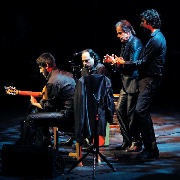
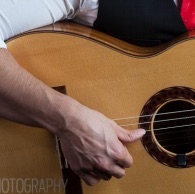
 I like doing some crossover of techniques, it's fun. I've been using rasguedos and tremolo and stuff on bass guitar, gives it a new spin.
I like doing some crossover of techniques, it's fun. I've been using rasguedos and tremolo and stuff on bass guitar, gives it a new spin.
 going by what you say you are not a beginner musicean so i trust you are beeing objective enough to yourself
going by what you say you are not a beginner musicean so i trust you are beeing objective enough to yourself 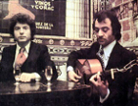
 ....not ...like that
....not ...like that 
 or even more fun...il have a go
or even more fun...il have a go 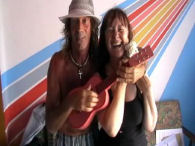
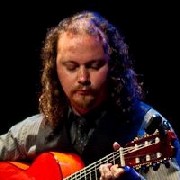
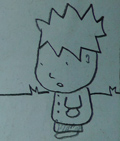

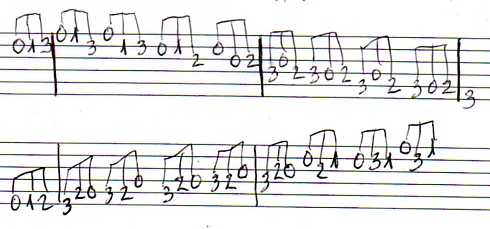

 New Messages
New Messages No New Messages
No New Messages Hot Topic w/ New Messages
Hot Topic w/ New Messages Hot Topic w/o New Messages
Hot Topic w/o New Messages Locked w/ New Messages
Locked w/ New Messages Locked w/o New Messages
Locked w/o New Messages Post New Thread
Post New Thread